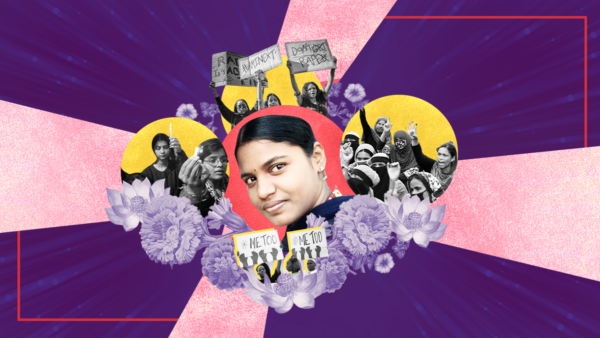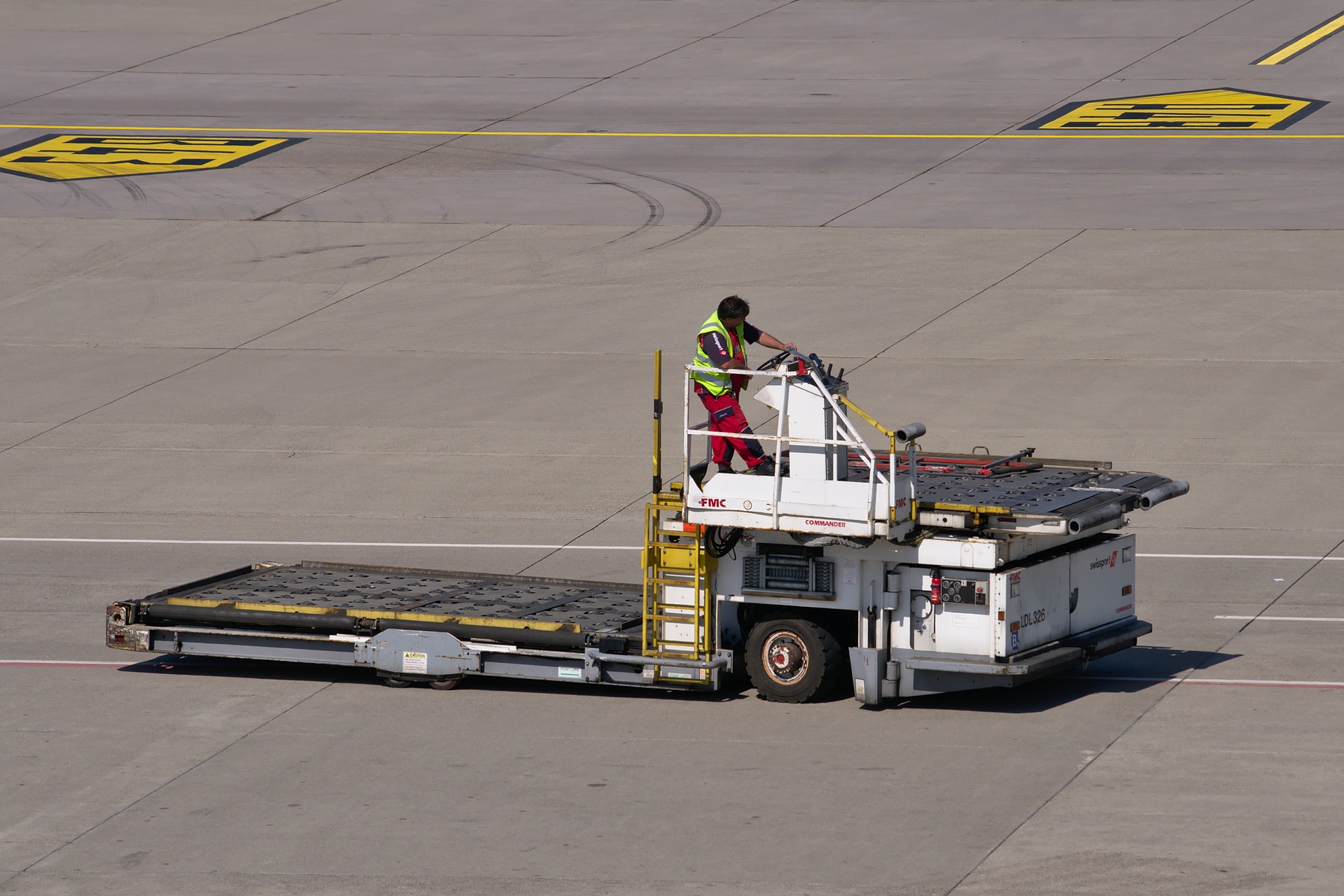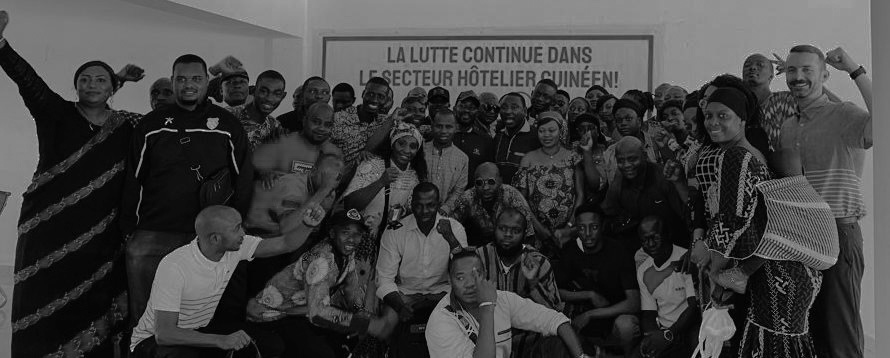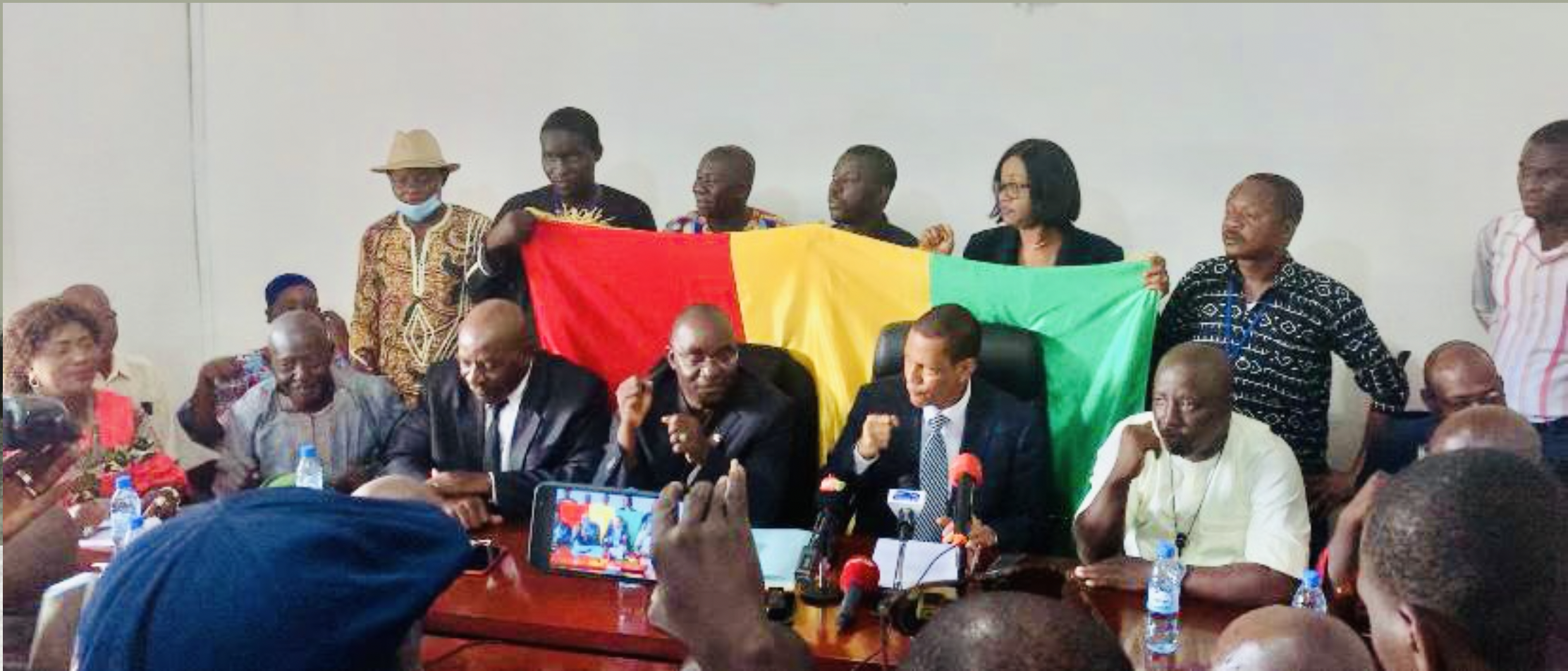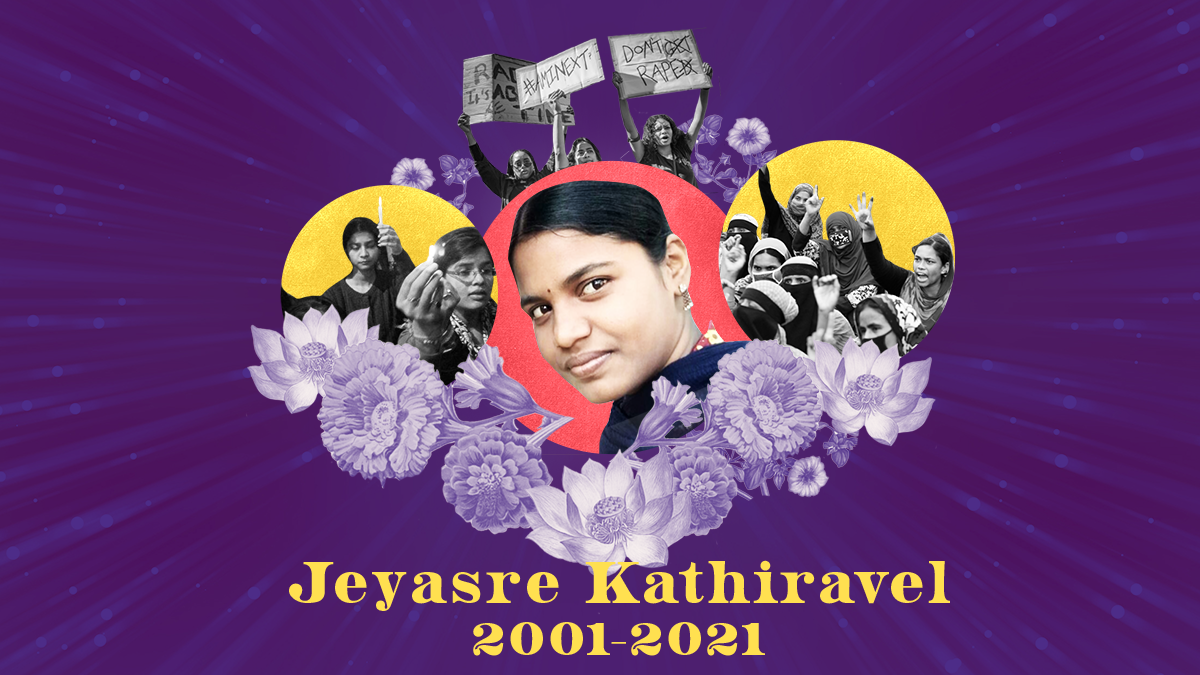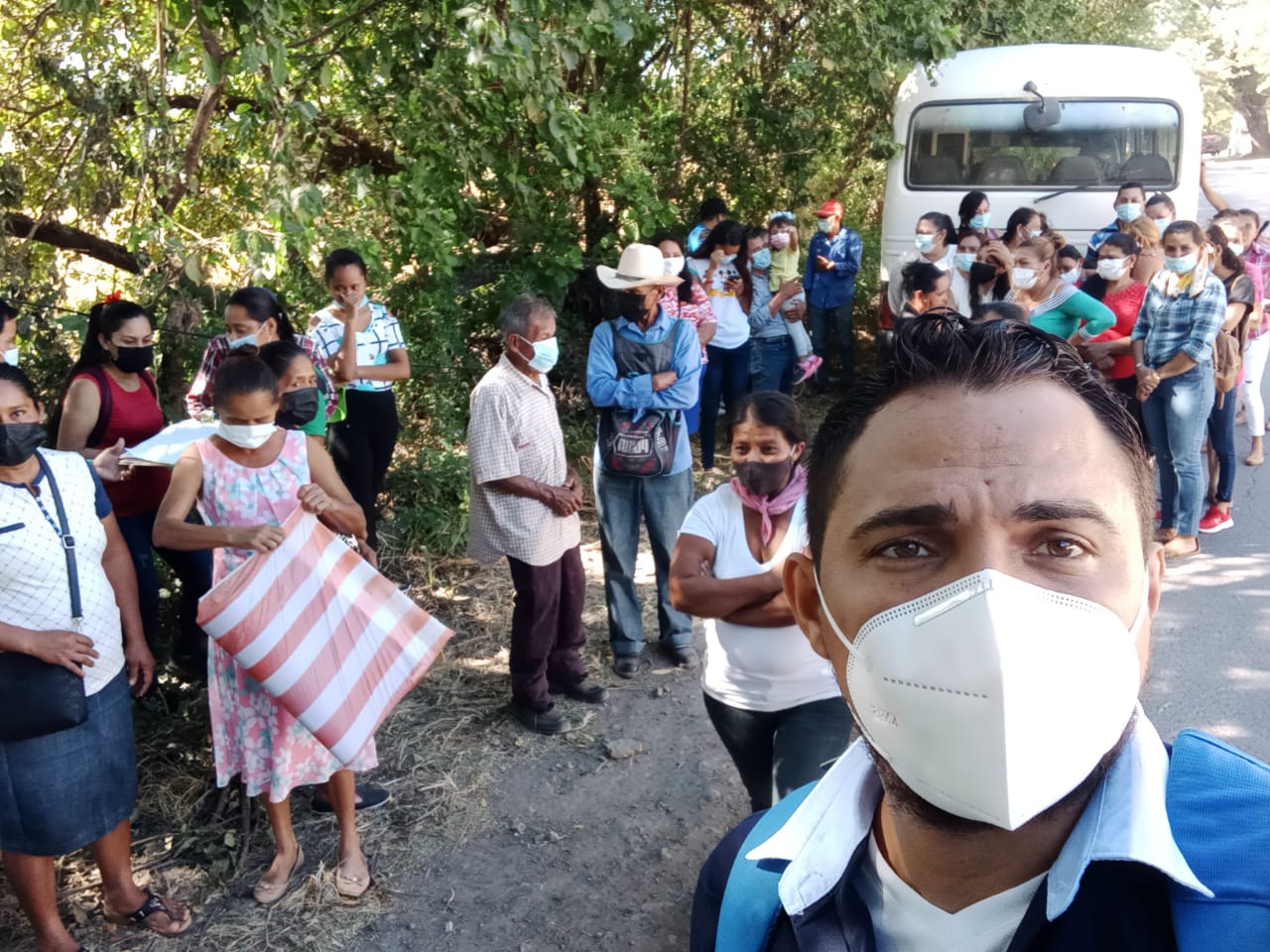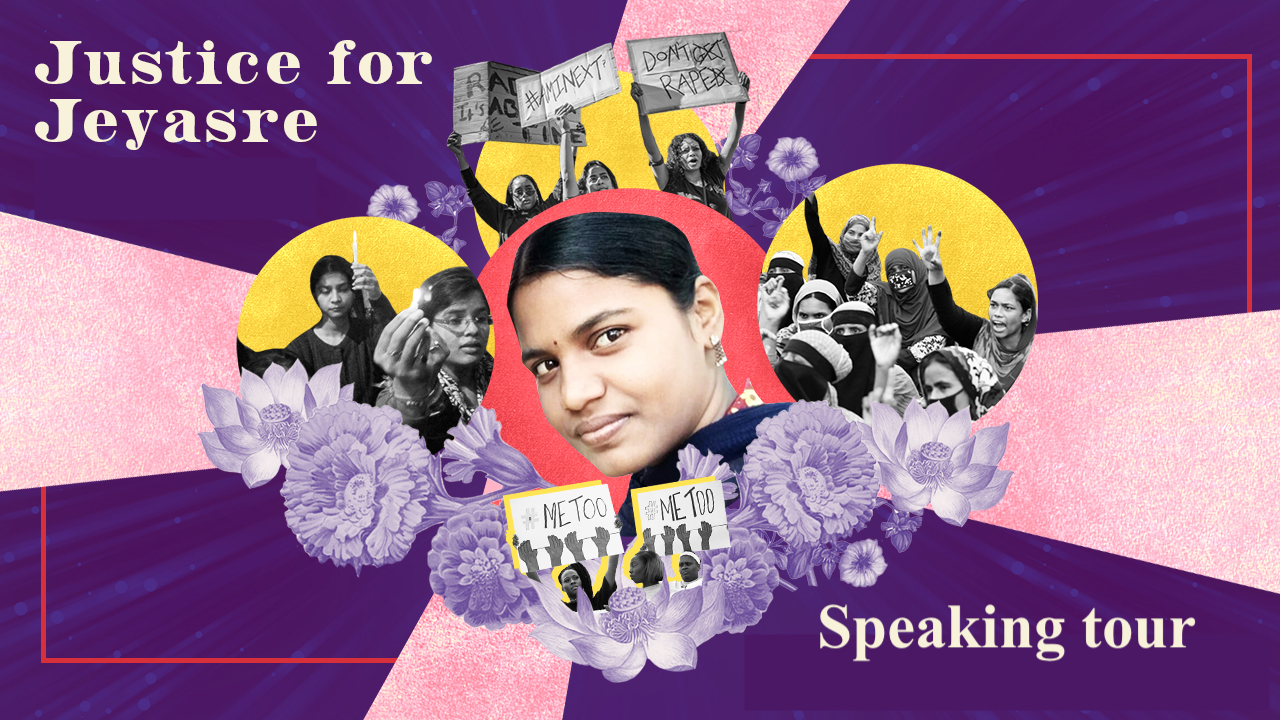01 May Message from the Executive Director: A new Global Labor Justice, building momentum for a more just global economy
Message from the Executive Director: A new Global Labor Justice, building momentum for a more just global economy
Thank you for those who join us for the 2024 Global Labor Rights Defenders Celebration on May 1, International Workers’ Day. Together with workers, their unions, allies, and labor rights defenders around the world, we are building momentum for a more just global economy.
With that momentum, we announce that going forward, we will be known as Global Labor Justice.
Under this banner, we will continue to weave together and build on all of our organizational history to deliver bold new strategies that help workers win across the challenges inherent in global value chains and across labor migration corridors.
The International Labor Rights Forum (ILRF) was founded almost 40 years ago by Pharis Harvey and a progressive coalition of labor, human rights, faith, and policy leaders confronting the effects of economic globalization on workers and committed to building human rights and labor rights into U.S. trade and development policy. ILRF led several successful campaigns to secure labor rights guarantees under U.S. trade laws and trade agreements and ensure that labor rights are prioritized in the transformation of the global economy, working with allies in the US and around the world.
Under the leadership of Steve Coats in the 1990s, the US/Guatemala Labor Education Project expanded its geographic focus to promoting full respect for labor rights globally and securing economic justice for workers in Latin America and the Caribbean. In 1998, the organization changed its name to the US Labor Education in the Americas Project (US LEAP) to reflect this broader mandate. The US LEAP program merged with ILRF after Steve’s untimely death in 2013. Today, US LEAP continues to lead advocacy for Central American workers organizing in the supply chains of US corporations and Steve’s legacy continues to inform our history and practice.
Global Labor Justice was established in 2017 by labor movement partners in the Global South and lawyers, organizers and advocates rooted in the worker center movement in the US. As their fights encountered the global economy, they saw an urgent need to expand the strategies and resources available to movements in the US and around the world. With the support of Jobs with Justice, they built a structure that connected law, policy and research with campaigns to organize workers across value chains of globally traded products and services.
Unifying the three pillars of our shared origins strengthens our foundation to advance worker organizing and hold governments, employers, multinationals, and investors accountable to fundamental labor rights.

We know that labor rights defenders in many countries organize in the face of immense risks. IUF and ITUC affiliate LRSU President sister Chhim Sithar remains in detention in Cambodia with other union leaders charged and convicted for organizing over wages and mass retrenchments at NagaWorld in Cambodia. Workers at the Sheraton Grand and Onomo hotels in Conakry are fighting job loss, subcontracting, and other retaliatory actions in response to their organizing which the development banks have yet to remedy. Migrant fishers face deportation threats for participating in organizing even in response to egregious occupational safety and health violations. These are just a few examples.
Today we are here to honor their commitments and pledge our support.
And still in the face of these obstacles, workers and their movements are having an impact. With IUF and its affiliates, workers are organizing to win collective bargaining and demanding accountability for labor rights from development finance institutions that invest in the hotel sector. Workers at the Marriott Ciela Hotel in Lusaka, Zambia have won their union after years of campaigning. In Uzbekistan and Turkmenistan, the Cotton Campaign works to ensure labor rights defenders and monitors can expose the truth of cotton harvest conditions without retaliation and advocates for workers’ access to fundamental labor rights.
Dalit women workers are transforming their workplace after the signing of the landmark Dindigul Agreement to End Gender-Based Violence and Harassment with their union TTCU and the Asia Floor Wage Alliance. Together, they have joined with the ITUC, the International Domestic Workers’ Alliance, Justice for Migrant Women, UNI, and unions around the world to build momentum towards the fifth anniversary of ILO Convention 190 and thirtieth anniversary of the Fourth World Conference on Women and the Beijing Declaration and Platform for Action.
In countries around the world, workers are coming together. Their agency reminds us how to live into existence the beautiful future that working people and their communities deserve: resistance that is joyful and powerful, actions that are magnificent and fierce, and transformative visions for generations to come.
And so, we again ask for your continued solidarity over the next year–with the Indonesian migrant fishers of FOSPI on the Taiwanese fleet who have launched the global WI-FI Now for Fishers Rights! Campaign with ITF, IUF, and faith, digital, and human rights allies calling on governments and supply chain actors to treat fishers as workers with labor rights; with the more than 1,000 seasonal farmworkers in Honduras and members of IUF affiliate Sindicato de Trabajadores de la Agroindustria y Similares (STAS) who have petitioned for job security, labor rights, and freedom from retaliation at multinational fruit corporation Fyffes; with garment worker members of AFWA partner unions across Asia in the Fight the Heist campaign, demanding Nike end stock buybacks and take responsibility for unpaid wages during the Covid-19 pandemic with the support of IPS, CWA, SEIU, RWDSU, Take on Wall Street, and the AFL-CIO; with the labor monitors in Uzbekistan trained by Uzbek Forum and the Central Asia Labor Rights Monitoring Mission whose work anchors real change in the lives of cotton farm workers; with the AFL-CIO, PowerSwitch Action, and other unions, community groups, athletes’ unions, LGBTQ+ rights groups across North America who are joining under the Dignity 2026 campaign to demand that the World Cup respect labor and human rights; and with IUF and hotel workers around the world, with solidarity from UNITE-HERE, demanding that multilateral development banks ensure that the labor rights they promise on paper reach into the hotels where they work.
At Global Labor Justice, our vision is clear. All workers–employees, contract workers, platform workers, etc.–deserve a living wage, safe and healthy working conditions, and a social contract. Freedom of association must be a given, and structural obstacles to participation and leadership like gender-based violence and harassment in the workplace must be eliminated. Workplace democracy and trade unions are not only central to a democratic society and a just economy–they are also vital to pushing back against authoritarian measures that are designed to limit participation. Together we can build the power of working people in opposition to corporate greed and growing anti-democratic, racist, and xenophobic forces.
In the next year we will challenge the supply chain business model that extracts wealth from developing countries and their structurally vulnerable workforces. We will fight migration policies that exacerbate worker vulnerability and deliver them to the bottom of those supply chains. And we will continue to counter the disempowering effects of financialization on the global workforce that have gone unchallenged for decades by building a transnational movement that understands how capital moves and organizes where workers live and work.
Together with labor rights defenders around the world, Global Labor Justice is building momentum for a more just global economy. We thank you for your support, and we ask for your ongoing solidarity in 2024 and beyond.
Jennifer (JJ) Rosenbaum
Executive Director
Global Labor Justice




